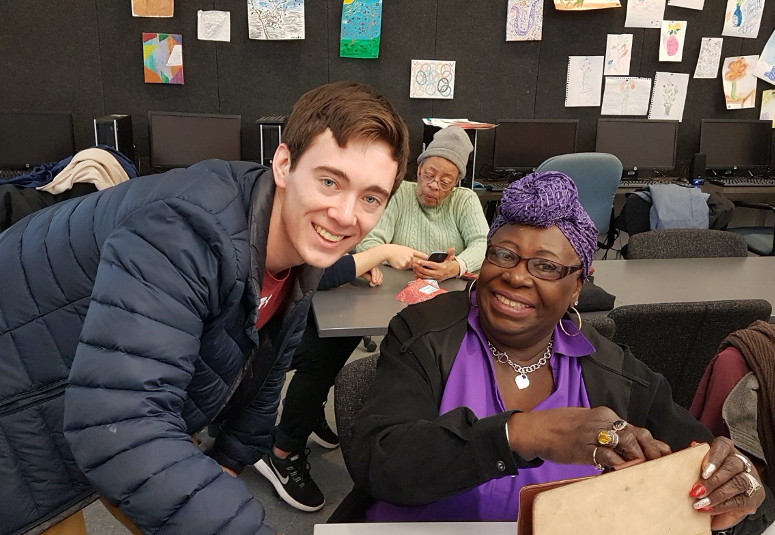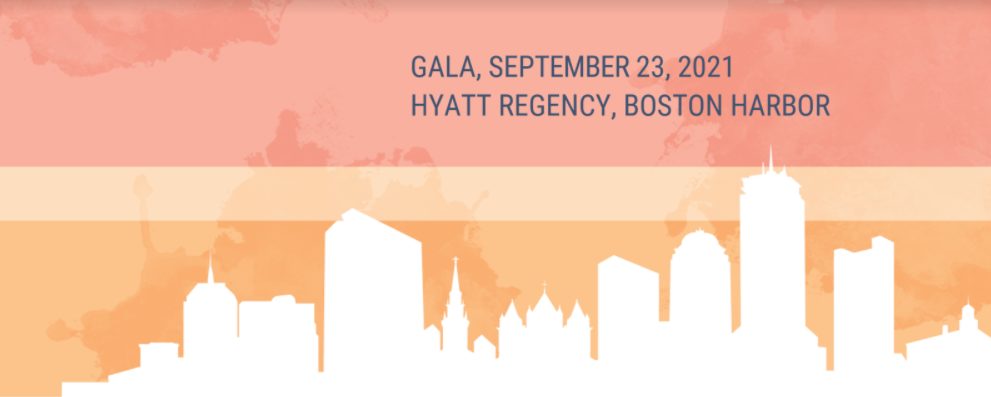
Good Evening Madam Chair, Commissioners, and fellow Bostonians on this call. My name is Nikki Shults, I am the Executive Director of Little Brothers – Friends of the Elderly (LBFE), a small nonprofit dedicated to relieving isolation and loneliness among the elderly. We do this through community-based intergenerational programming. Thank you for the opportunity to speak at today’s hearing on the Digital Divide. An issue that has long been a part of our work at LBFE, and one that has taken on a new level of urgency in the past year. To give you a little bit of context there, about three years ago we were seeking funding to start an intergenerational tech program but were turned down. One foundation had even said they were surprised to see our application because the assumption was the grant seekers would all be from youth serving organizations. Fast forward to today, we’ve put together a new proposal for an IG tech program and there are several foundations currently prioritizing tech programs that reach older adults. What a difference a pandemic makes.

Allow me just for a moment to share some data with you in regards to older adults and the Digital Divide:
A recent Pew study found that 75% of people over 65, and only 44% of those over 80, use the internet. The same study also found that technology adoption, while increasing among older adults, is tied to educational attainment and household income. Only 46% of older adults with annual incomes lower than $30,000 go online and only 27% of low-income older adults have high-speed internet at home. According to OATS research Aging Connected (2021), the 42% of older adults who lack internet at home “represent the second largest demographic group of Americans left behind in the digital age.”
As reported in Housing a Changing City (2014), 84% of Boston’s senior households are considered low-income, and 62% of low-income seniors live in one of the Boston Housing Authority’s 11,886 units of subsidized housing.
According to Intergenerational Programming in Senior Housing: From Promise to Practice (2017), many individuals who transition into senior housing find it difficult to establish new social connections. Older adults who live in public housing are particularly prone to these difficulties, as many residents live alone, have lower incomes, struggle with chronic health conditions, and have fewer social supports. The Resident Service Coordinators who have served as the first line of social support for many older adults in senior housing are now in Boston Housing Authority buildings on a very limited basis due to HUD funding cuts, which exacerbates the social isolation residents may experience and limits their access to regular programming within buildings. In LBFE’s COVID19-era move to online programming, our BHA sites have seen the greatest participant attrition. We have maintained relationships with some of these residents via our telefriend program, but our experience in the last year supports the overall data that older adults in public housing face some of the greatest barriers in accessing technology.
Simply put, access to technology is a social determinant of health. And to be clear, access to technology means three things: the ability to own or access a physical device, affordable, high speed internet connectivity, and support/training to use it. Without all three, we cannot say that someone has access to technology.
We have endured a difficult year and the expansion of digital tools and technologies has become even more woven into the fabric of our lives: remote learning, telehealth visits, live streamed public meetings, virtual social activities, census participation, vaccine registration. While technology has been a cornerstone of culture and connectivity, it’s well documented that there is a digital divide that exacerbates inequitable systems. The pandemic put a spotlight on systems of oppression and harm and we are now at a crossroads with an incredible opportunity to make meaningful lasting changes. And today I am grateful to be having this conversation to make strides in closing the digital divide.
LBFE’s main interest here is to ensure that all conversations, initiatives, and investment in broadband and other digital infrastructure includes older adults. This past year with the help of the City of Boston we’ve distributed tablets with prepaid data plans to our program participants who needed them, and we deployed our student volunteers to host our regular weekly CitySites programs via Zoom. In the beginning much of their time was spent offering tech help and troubleshooting. As the months passed by and folks became more comfortable with the technology the programs became about so much more. Our virtual CitySites programs became virtual community rooms bringing neighbors back together again, and creating spaces where older and younger people could meet and form friendships. These virtual programs became a lifeline during a frightening and lonely year. Older adults aren’t online because they aren’t interested – they aren’t online because they lack access.
But as the world opens up again, we cannot go back to the way things were. Any work done to reduce the digital divide must engage nonprofits, local government, educators, neighborhood groups, councils on aging, libraries, public and private housing, schools, faith communities, business, and people of all backgrounds, abilities and ages.
A key focus of work to close the digital divide must be to provide high quality, fast, powerful broadband internet access to low-income communities and public housing buildings. Speeds high enough to conduct telehealth visits, live stream and participate in community meetings, engage in remote classes and work without disruption or slow, overcrowded networks. If we are given an opportunity to dream big, and resources to build a strong infrastructure, we should consider not only bringing broadband into public housing common areas, but into individual apartments. A small computer lab in a 100+ unit building is not enough. People cannot be expected to make telehealth appointments when their only computer access is public. Further, resources must be put into programs that provide training and support for new internet users. Organizations that already engage older adults should be provided resources to expand skill-building programs that address multiple training needs: accessing telehealth, completing forms/applications, banking, shopping, fitness, and social opportunities as well as identifying and preventing scams and fraud. As we take on this work, I implore those who create commissions, allocate funding, and make decisions to include older adults in the conversation. Too often technology is considered through a narrow lens of youth and students – but older adults need to be centered in the conversation.
I thank you all for your time and consideration today. I will close by saying it again: technology is a social determinant of health, and should be treated as such. I applaud our community for holding this conversation and listening to the people before embarking on this courageous and important work. We need bold leadership and innovative ideas to take on the challenges of our times. This work of closing the digital divide needs to be grounded in justice, equity and inclusion. Solutions need to be implemented by a commission representative of our community – across cultures, race, gender, ability, economic status, and age.
For more information contact Executive Director Nikki Shults at nshults.bos@littlebrothers.org or 617-524-8882.
About Little Brothers-Friends of the Elderly, Boston Chapter (LBFE – Boston)
LBFE — Boston was founded in 1979 as part of a national network of non-profit volunteer-based organizations committed to relieving isolation and loneliness among the elderly in Greater Boston. Our motto, flowers before bread, reflects our belief that living is more than a roof over our heads and food on the table, but also the presence of people who care. LBFE Boston hosts intergenerational social activities and visiting programs to over 1000 elders every year. Priority is given to those living in senior housing at, or below the poverty line, without charge and without regard to race, gender, creed, nationality, or sexual orientation. LBFE – Boston is a 501(c)(3) operating solely with the support of individual donors, volunteers and foundation or corporate assistance. For more information, visit www.littlebrothersboston.org.

